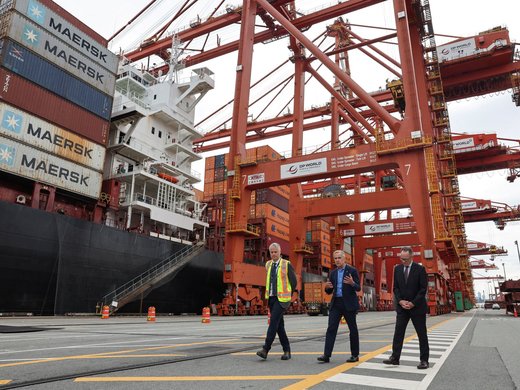The world is highly volatile and Canada’s prime-minister-designate will quickly confront a series of challenges to our national interests. As the harsh global realities and potentially combustible situations assert centre stage, nostalgic sentiments about peacekeeping and United Nations-centred multilateralism will not provide much of a prescription for relevance or effect.
As Henry Kissinger pointed out last week in The Wall Street Journal, the geopolitical order of the past 40 years is in shambles. Following his essentially unchallenged dismemberment of Ukraine, Russian President Vladimir Putin is now, for the first time, engaging militarily in a political and security vacuum in the Middle East. He intends to become the regional kingmaker, supplanting the United States. Mr. Kissinger rightly says that Islamic State now poses the greatest immediate threat to stability, and its destruction “is more urgent than the overthrow of Bashar al-Assad, who has already lost over half of the area he once controlled.”
But the U.S.-led coalition effort against IS is in disarray. Prime-minister-designate Justin Trudeau has signalled a “responsible” withdrawal from the combat mission against IS, and given the meagre results of the mission to date, that may not be too difficult to finesse. But it will do little to eradicate the terrorist menace. Along with the cancellation of Canada’s participation in the Joint Strike Fighter program, this recall will not sit well in Washington, and will not square with Mr. Trudeau’s statements that Canada seeks deeper and closer relations with the U.S.
Mr. Trudeau’s formal debut on the world stage will come at the G20 Leaders Summit in Turkey on Nov. 15. He will get a first-hand glimpse at the refugee crisis that is engulfing and threatening to destabilize the social and political fabric of Europe. That gathering will be followed in rapid succession by the Asia-Pacific Economic Cooperation meetings in Manila Nov. 18-19.
Mr. Trudeau will then head to Paris for the UN climate change conference that begins Nov. 30. He promised that he would convene a First Ministers meeting to iron out Canada’s position before Paris, but time is short, and forging a national consensus on meaningful carbon reductions is a tall order. Canada should not repeat the mistake it made at the Kyoto climate summit many years ago, which was to agree to hastily improvised targets without calculating the costs or consequences of implementation. Given the fragile state of the Canadian economy and the weak price of oil, which the International Energy Agency forecasts will remain low throughout 2016, Mr. Trudeau will also have to act prudently.
But it is the bilateral agenda with Washington that will be Mr. Trudeau’s most immediate challenge. High on the list is the Trans-Pacific Partnership agreement, signed by the outgoing Harper government; Mr. Trudeau will now be privy to the details. He will have to decide sooner rather than later that this is an agreement that he is prepared to endorse. If ratified – an open question in Washington – it will supersede NAFTA, and there is no going back.
Mr. Trudeau also confronts a list of thorny, bilateral irritants – U.S. restrictions on Canadian beef and on softwood lumber (the latest accord expired on Oct. 12), and Buy American provisions that discriminate against Canadian manufacturers. His challenge is not simply to change the tone of Ottawa’s dealings with Washington, but also to get Washington to change its own behaviour. If, as expected, Mr. Obama vetoes the Keystone XL pipeline, which Mr. Trudeau openly supports, that will become his problem. He would be wise to counter such a veto with a full endorsement of the Energy East pipeline that would at least give our oil exports more than a single, discount market. Americans understand leverage more than sentiment.
The prime-minister-designate would be well advised to initiate a strategic outreach to China in part to achieve a similar objective.
On the campaign trail, Mr. Trudeau was a stunning success. But his energy, determination, sunny disposition and skills as a boxer will be even more in demand now. Foreign policy is a contact sport, and one that requires a clear strategy to win. As Sugar Ray Leonard once said, “I was painfully initiated into boxing, because the guys I fought were a lot bigger than me.” Welcome to the global ring, Mr. Trudeau, and, above all, don’t lead with your chin.


